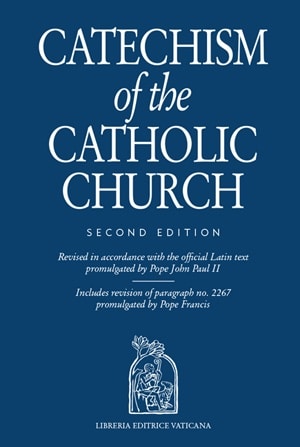One key number for the new year

As the new year begins, it’s all about numbers, isn’t it?
From the annual countdown in Times Square to our blundering efforts to date a check (and getting the year wrong) to the spinning numbers we see below our feet when we step on the bathroom scale and realize we should have skipped that extra slab of fruitcake … we’re watching the numbers.
Maybe, as part of that, we make resolutions. We resolve to diet, to spend less, to exercise more. Fewer calories! Less carbs! More steps around the block!
That’s all well and good. (Who needs to do all of that? … I’m raising my hand.) But before we let those numbers overtake us — and before we give up trying to keep those resolutions — I’d like to offer a number that may be among the most important ones you encounter in the new year.
Here it is, four digits that can rock your world: 2478.
It’s not a password or the combination to my safety deposit box. But it holds the key to making this new year a time of new beginnings — and, I think, a new way of looking at life.
 If you flip open your copy the Catechism, skip ahead to paragraph 2478.
If you flip open your copy the Catechism, skip ahead to paragraph 2478.
I’ll make it easy for you. “To avoid rash judgment, everyone should be careful to interpret insofar as possible his neighbor’s thoughts, words and deeds in a favorable way. Every good Christian ought to be more ready to give a favorable interpretation of another’s statement than to condemn it. But if he cannot do so, let him ask how the other understands it. And if the latter understands it badly, let the former correct him with love. If that does not suffice, let the Christian try all suitable ways to bring the other to a correct interpretation so that he may be saved” (CCC, No. 2478).
I’m going to go out on a limb here and say this is arguably one of the most important (and most overlooked) passages in the Catechism. While we routinely refer to this book to concern ourselves (correctly) with understanding Church teachings, avoiding sin and following God’s commands, we can easily forget that the Catechism here serves another necessary function. It reminds us that one of the most vital aspects of the Christian life is, quite simply, to act like Christians. To be decent. To be fair. To “avoid rash judgment.” To treat one another with dignity and charity, and when we disagree, “correct … with love.”
When was the last time anyone did that — especially in the exhausting hothouse of social media? Scan Twitter or Facebook and you won’t see much of that at all.
At a moment when we are — as a nation and a Church — increasingly divided, separated, fractured and polarized, I think we need more than ever to practice the holy art of “giving a favorable interpretation” to others.
Our baptism, after all, calls on us to carry the light of Christ in our lives. But too often, I think, we let the shadows overwhelm us.
The world these days doesn’t help. We are conditioned to argue, criticize and strike back; increasingly, people seem to think if you disagree with someone, you have to hate them, and there’s no better way to express that than with 140-word tweet, peppered with LOTS of CAPITAL LETTERS and PUNCTUATION!?!
But, to borrow a phrase from St. Paul’s advice to the Corinthians: There is “a more excellent way.”
The way, in fact, of love.
This means — let me add more numbers to the mix — taking a breath and, just maybe, counting to 10 before responding to someone, either online or in person.
Want to let fly with a snarky response? Don’t.
Pause. Think. Consider consequences. Most of the time, it just isn’t worth it. Take a moment to “interpret in a favorable way” where someone else is coming from.
In a nutshell: work to believe the best in someone, not the worst.
This also means working to turn every encounter into something almost sacred.
Seek the good. Appreciate the mundane. Be grateful for any connection that reminds us that we are all created in God’s image, and are “fearfully, wonderfully made.”
What I’m suggesting here isn’t daring or different. I’m not saying anything we don’t already know. But it is something we easily forget or neglect.
It’s really an adjustment in attitude. Maybe we need to worry less about the weight we want to lose and think more about the weight we need to take off our shoulders — the heavy burden of always needing to be the winner of every argument, and to consider others in the worst possible light.
There really is a more excellent way.
Want to make a resolution for this year that will really matter? Resolve to think more positively of others.
This year, maybe we need to extend the effort to look at others as equals, not rivals; to see people of possibility, not problems; to think of our time together here on earth as a period of engagement, not enragement.
I’m giving it my best shot. I have a Post-it note above my desk with those numbers scrawled on it: 2478. Every now and then, I’ll dip into the Catechism and remind myself there are other ways of looking at The Other — and it is, I think, one way of healing a wounded world.
It is a way of compassion. A way that seeks to understand.
A way of love.
Frankly, I think, it is the way of Jesus Christ.
Try it. This year, skip dessert. Pass on the cookies. Cut up the credit card.
And consider every morning No. 2478 from the Catechism — a number that in our hostile and broken world may make a difference that really counts.
Deacon Greg Kandra is the creator of “The Deacon’s Bench” blog and the author of “Befriending St. Joseph” (Ave Maria Press, $13.95).
No comments:
Post a Comment